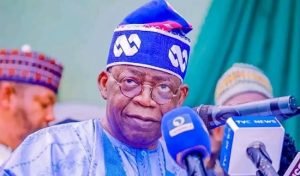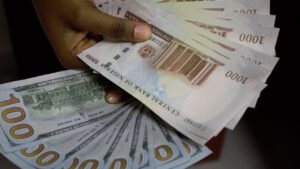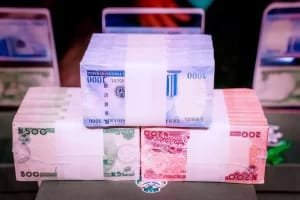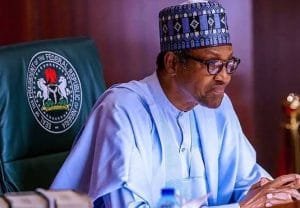As 2023 winds down, African Health Report’s Gom Mirian reflects on major events that shaped Nigeria’s economic sector.
The year 2023 has been a rollercoaster ride for Nigeria, with policy somersaults and financial hardship shaping the country’s economic sector. The transition of power from former President Muhammadu Buhari to President Bola Tinubu signaled the beginning of a difficult period for Nigerians, with many falling below the poverty line due to harsh economic policies of the present administration.
Fuel Subsidy Removal
“Subsidy is gone. we shall instead re-channel the funds into better investment in public infrastructure, education, healthcare and jobs that will materially improve the lives of millions.”
With those words, in an impulsive move, President Tinubu announced the removal of fuel subsidy on May 29, setting off a series of economic effects on the people which they are yet to be able to deal with. The pump price of petrol rose from the previous N194 to N550 in Nigerian National Petroleum Corporation Limited (NNPCL) retail outlets, with little variance in different regions of the country. For a nation already grappling with endemic poverty, this single act further worsened the situation as the resultant inflation devalued the naira in the purses of Nigerians, thereby reducing their purchasing power.

Tinubu claimed at the time of the removal of fuel subsidies that it was aimed at reducing the burden of the payment on Nigeria’s finances and that the funds saved from non-payment of subsidy, will be used to provide infrastructure, improve education, healthcare and create jobs but these are yet to be seen. What is evident now is job losses, increased education cost, more expensive medicines and healthcare cost and skyrocketing cost of food.
He had also assured Nigerians that CNG buses will be provided to ease the pains of increased transportation fares which rose up to 200 percent more, but till date, no such bus is plying the roads. He also promised to pay government workers an additional 35 percent of their salaries for six months to cushion the effect of increased transportation and other costs, but since then, only one month has been paid. The Nigeria Development Update (NDU) reports that the poverty rate in Nigeria increased from 40% in 2018 to 46% in 2023, i.e. from 79 million poor Nigerians in 2018 to 104 million in 2023.
Exchange Rate Unification and Naira Devaluation

The continuous drop in the value of the naira against the dollar and other foreign currencies also shaped the economic sector in 2023. The exchange rate unification policy of President Tinubu resulted in further plunge of the naira. This had implications for import-dependent sectors, inflation rates, and affected overall economic growth and stability trajectory.
The N5bn Fuel Subsidy Palliative
Perhaps the biggest joke of the year is the Federal Government’s five billion naira palliatives to each state, including the Federal Capital Territory (FCT). It was meant for providing assistance to vulnerable households. However, these measures, from the start, lacked the components needed to alleviate the hardship brought upon Nigerians by the poor policy decisions of the government. It was a charade in states as citizens were given a mudu (about 9 small cups) of rice and maize as one off palliative to help them deal with their financial problems.
Currency Redesignation and Resultant Cash Crunch

In the eve of the 2023 general elections, the Central Bank of Nigeria (CBN) under President Muhammadu Buhari redesigned the three highest naira notes. The redesign, according to the CBN Governor at the time, Godwin Emefiele, was to strengthen the economy, reduce the expenditure on cash management, promote financial inclusion, and enhance the CBN’s visibility of the money supply. However, limited access to the new currency due to the hasty withdrawal of existing notes resulted in hardship for Nigerians. Having complied with the CBN’s directive to deposit their old notes at their banks and without the banks dispensing new notes due to shortage, people had to pay a lot of money to buy the new notes.
Coupled with other factors, this led to significant inflationary pressures, eroding the purchasing power of consumers and hindering economic growth.
Unveiling of ERGP
Earlier in the year, the Economic Recovery and Growth Plan (ERGP) was introduced by former President Muhammadu Buhari. It emphasised the promotion of sectors such as agriculture, manufacturing and tourism to generate revenue for the country by establishing a more sustainable and robust economic framework, thereby reducing the country’s dependence on oil.

Energy Sector Reform: 2023 Electricity Act
Another significant event that shaped Nigeria’s economic sector in 2023 was the signing of the Electricity Bill into law. This move is geared towards addressing challenges in the energy sector, such as inadequate power supply and distribution inefficiencies. By reforming the energy sector, Nigeria seeks to attract foreign investments, improve access to electricity, and stimulate economic growth.


